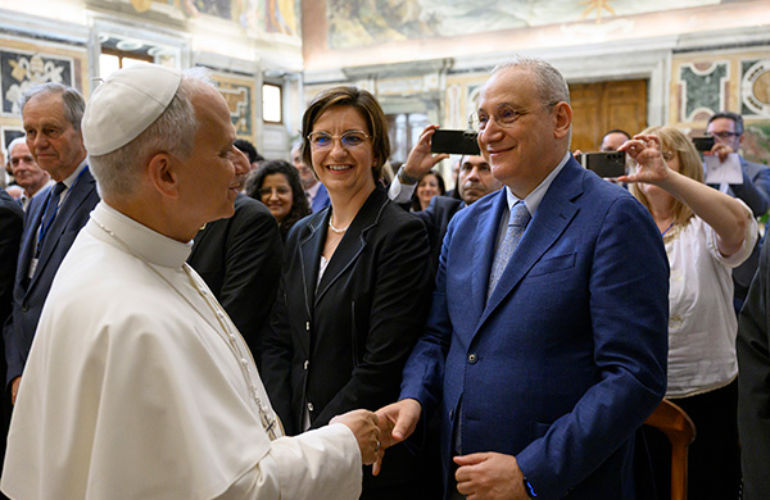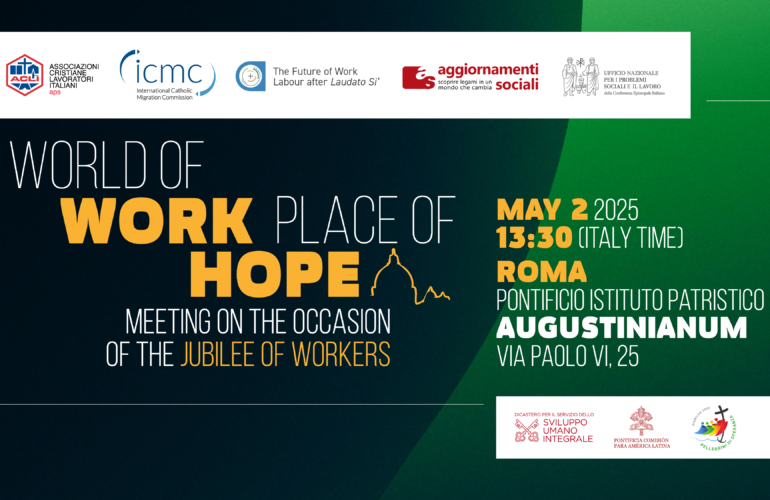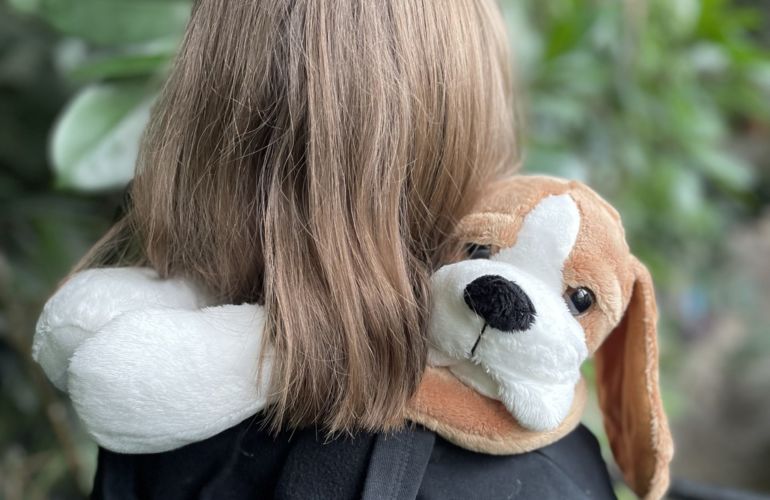The best interests of the child should always be the primary consideration when protecting children on the move, especially those who are unaccompanied or separated from their families. ICMC advocates for the best protection possible for migrant and refugee children ensuring that procedures prioritize and respond to children’s best interests, account for the particular risks they face and provide options fostering a safe and healthy future for them.
We must take care of children, urges Pope Francis. They “are invisible and voiceless: their precarious situation deprives them of documentation, hiding them from the world’s eyes; the absence of adults to accompany them prevents their voices from being raised and heard.”
ICMC is inspired by Catholic Social Teaching and has heeded this message ever since its foundation. Responding to the Pope’s call is important now more than ever because millions of children are on the move: according to the UN agency for children, UNICEF, in 2018, half of the world’s refugees were under 18 years old.
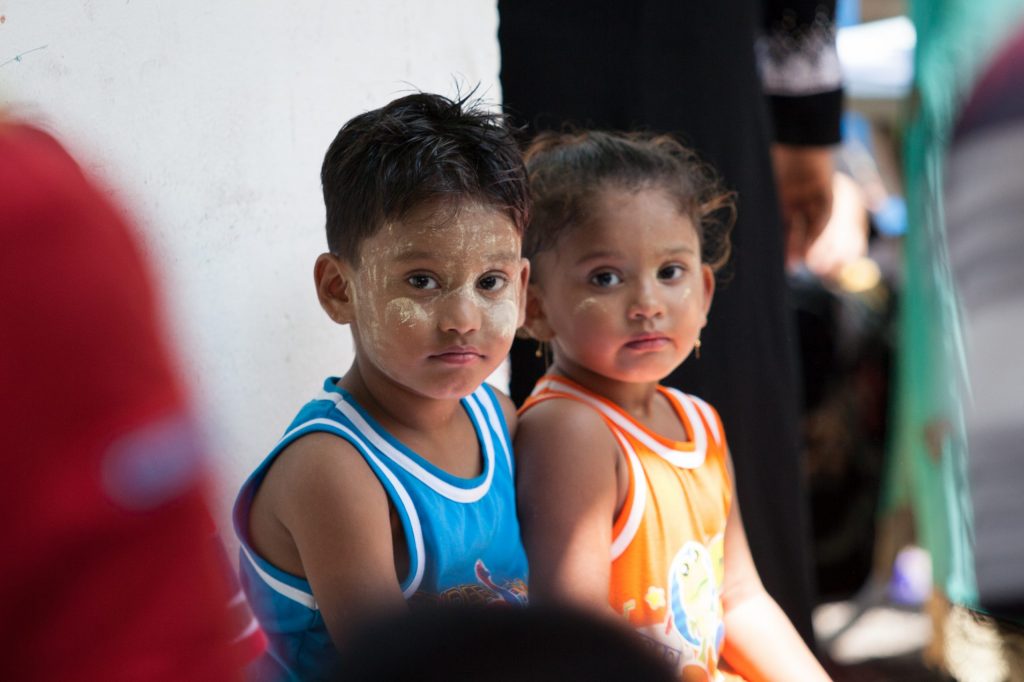
A child is a child and deserves special protections while on the move – irrespective of the nationality or migration status of his or her parents. The uniqueness and inherent dignity of every person, and every person’s right to self-determination are values which should always be taken into consideration when protecting children, especially those who are unaccompanied or have been separated from their parents or guardians in the context of migration.
ICMC advocates for child-sensitive migration policies that take into account the particular vulnerabilities and risks children and youth face while on the move. Because of their age, migrant children – especially those who migrate alone – are more likely to be exposed to dangers such as violence, sexual abuse, human trafficking, forced labor, detention, and trauma. Too many of them go missing along the route, falling into the hands of unscrupulous traffickers who take advantage of their vulnerability and lack of experience.
In addition, border guards encountering them do not always have the necessary training to provide children with adequate and child-sensitive protection measures. Moreover, reception centers can be crowded and may lack separate housing facilities for them, so children and youth have no choice but to live in quarters with adults who are not family members.
From our field operations, we know that children and youth often experience serious psychological trauma along the migratory route and upon arrival many encounter difficulties and even barriers to accessing adequate healthcare, psychosocial support and proper nutrition.
Children can also be confronted with legal, social and language barriers that prevent them from exercising their rights to education and healthcare. While on the move and even after arrival, they miss out on education opportunities. Over 40% of children on the move polled by UNICEF said that “they received no help during their journey in search of a safe and better future”.
In 2018, UNHCR reported 138,600 unaccompanied or separated children seeking asylum, a figure that is likely to be a gross underestimate. Children and youth below the age of 18 constituted half of the refugee population in 2018.
We know that children have an immense resiliency and capacity to rebuild their lives. This is why ICMC urges States to streamline child-sensitive approaches and the ‘child best interest’ principle in their migration policies so that children receive the care and opportunities they need to bounce back and flourish in their host communities. ICMC believes that responses to migration cannot adequately protect children unless they systematically take into account their best interests and specific needs.
ICMC calls for the expansion of safe, orderly and regular migration pathways for children and their parents, acknowledging that keeping children together with their families generally improves the family’s resilience and integration into the host community.
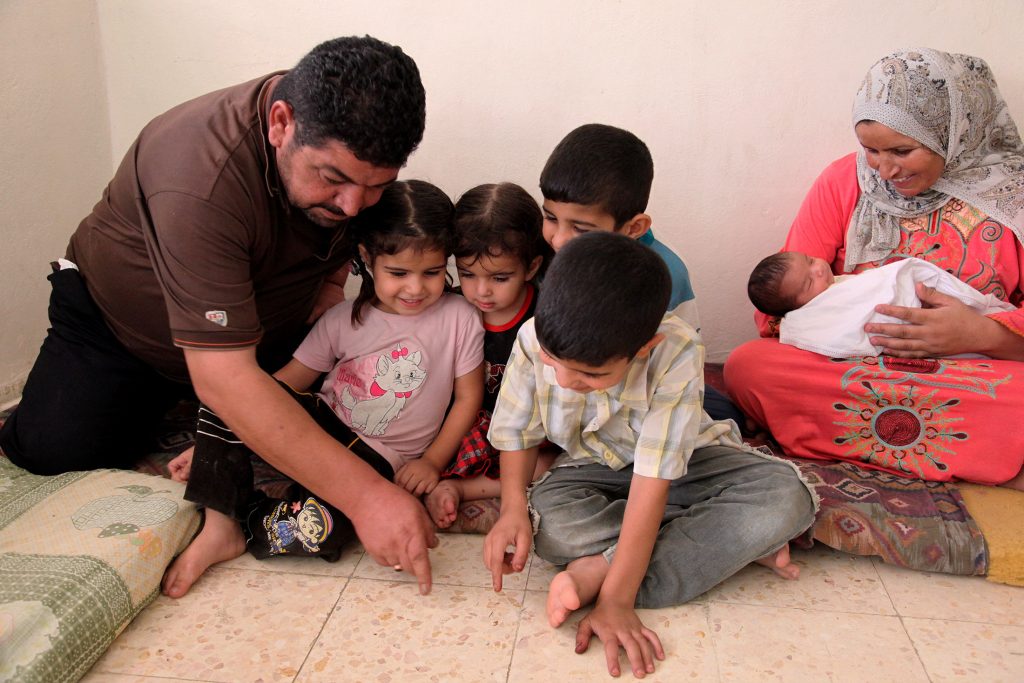
Children should not be seen as criminals; sadly, they can be often victims of dangers and treachery along their migration journey and need child-sensitive protection responses and opportunities for education that facilitate their resilience and recovery and successful integration into the host community.
In line with the Pope’s call and what ICMC sees in its field operations, hearing, respecting and responding to children’s voices and perspectives is essential in order to provide them with suitable care and support. Practically, this should be the first step for those working at borders, such as border guards, immigration professionals and social workers who should receive the proper training in child identification, referral and response.
Given the millions of children on the move, ensuring that States implement migration mechanisms that are child-sensitive, identify children’s needs and refer them to the right support and assistance is critical.
ICMC’s advocacy seeks to uphold children’s dignity, achieve concrete ways to protect children on the move and reaffirm their rights. Our advocacy is grounded on Catholic Social Teaching as well as the principles enshrined in UN Convention of the Rights of the Child, the Universal Declaration of Human Rights, the 1951 Refugee Convention and its 1967 Protocol as well as those principles and mechanisms mentioned in the Global Compact on Refugees and in the Global Compact for Safe, Regular and Orderly Migration.
Working With Partners Towards a Common Goal
In Europe, ICMC together with other civil society organizations urge the European Union to invest sufficient resources on migrant children and provide them with effective protection systems. Migrant children are future European Union citizens, and they should be considered as children first, regardless of their migration status.
In March 2020, ICMC Europe joined a number of civil society organizations asking for an urgent solution to the dire situation on the Greek islands and at the Greek-Turkish border. At the time, over 1,800 unaccompanied refugee and migrant children endured inhumane living conditions. ICMC called on the governments of European Union member states to urgently relocate these vulnerable children, taking into account family links and their best interest.
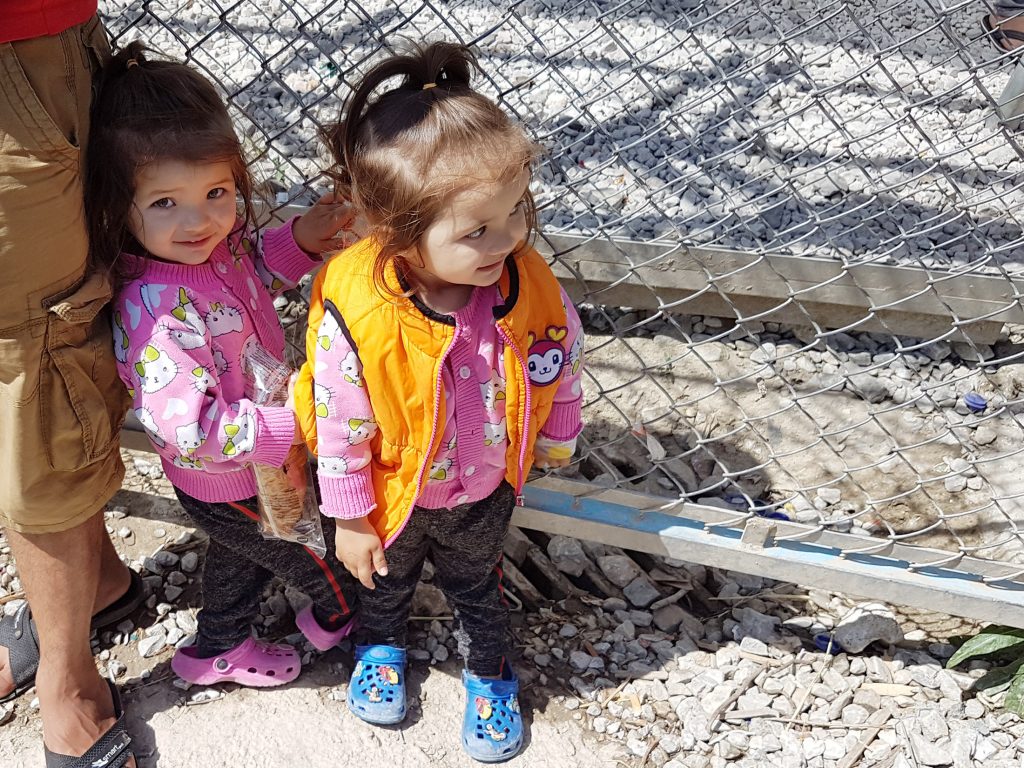
ICMC is an active member of the Alliance for Child Protection in Humanitarian Action. The Alliance envisions a world in which children are protected from abuse, neglect, exploitation and violence in humanitarian settings. Its mission is to support the efforts of humanitarian actors to achieve high-quality and effective child protection interventions in both refugee and non-refugee humanitarian contexts.
The Alliance is a global network of operational agencies, academic institutions, policymakers, donors and practitioners, which facilitates inter-agency technical collaboration on child protection in all humanitarian contexts.
ICMC also advocates for enhanced children protection in migration in partnership with the Initiative for Child Rights in the Global Compacts, a consortium of civil society organizations protecting children on the move. Throughout the two-year process leading up to the affirmation of the Global Compacts on Refugees and for Safe, Orderly and Regular Migration, ICMC alongside the Initiative, intensively and successfully advocated for strong, child-sensitive protection measures which feature in both Compacts.
No Child Should Be Returned, Unless It’s in Her or His Best Interest
ICMC expresses grave concern at the increasing trend by which high-income countries stop migrants and refugees, including children and other vulnerable populations, from accessing their territories to seek asylum. Equally concerning to ICMC is the trend to return migrants, including children, to countries where violent conflict and the lack of the rule of law or reintegration opportunities impede adequate measures of protection and a dignified existence.
ICMC acknowledges that States have the sovereign right to return migrants, including children. Well-managed migration includes returns and repatriation where migrants and asylum seekers voluntarily make the decision to return, are well-informed of their reintegration prospects in their home country and are in no way forced into going back to a situation where they will encounter torture, persecution or life-threatening violence.
ICMC also affirms that the decision to return a child should always be in his or her best interest, accurately reflect the child’s protection needs and should be performed in accordance with international obligations on child rights such as the Convention on the Rights of the Child. Children should never be forced to return to countries in conflict where they will be exposed to torture and persecution, or that lack the educational, health or social infrastructures to provide them with safety, adequate protection and the opportunities they need to grow.
Curbing the Long-Term Damages Caused by Detention
Detention has a profoundly negative impact on children’s health and psychosocial development, with unaccompanied minors particularly at risk of a breakdown in mental health. Even a short period of detention can be deeply traumatic for a child.
Children, whether with or without their families must never be detained because it is never in their best interests and is a violation of their rights. Community-based alternatives to detention prove to be much more effective, less costly to the State and should be used. At borders, unaccompanied and separated migrant and refugee children should be swiftly identified, referred to national protection authorities and either reunited with family members in the country of destination or provided with quality guardianship or community-based settings where their individual health, psychosocial and educational needs can be met.
In Australia, ICMC members have played a key role in advocating for the release of minors being held in detention centers while waiting for an outcome of their asylum application – a potentially very lengthy process. A group of organizations, including the Jesuit Refugee Service, proposed alternatives to the incarceration of unaccompanied minors, including community detention, which allows a certain amount of freedom and restores some normalcy to their lives. The mental health of migrants held in community detention was better than that of those incarcerated. Their limited freedom also allowed them to become familiar with the country’s culture and language, facilitating the integration of those whose asylum claim was accepted.
Upholding Refugee and Migrant Children’s Right to Education
Refugee and migrant children have a right to access education at all times. And yet, refugee children are five times more likely to be out of school than non-refugee children. Only 50% of the global total of refugee children have access to primary education, compared with a global level of more than 90%.
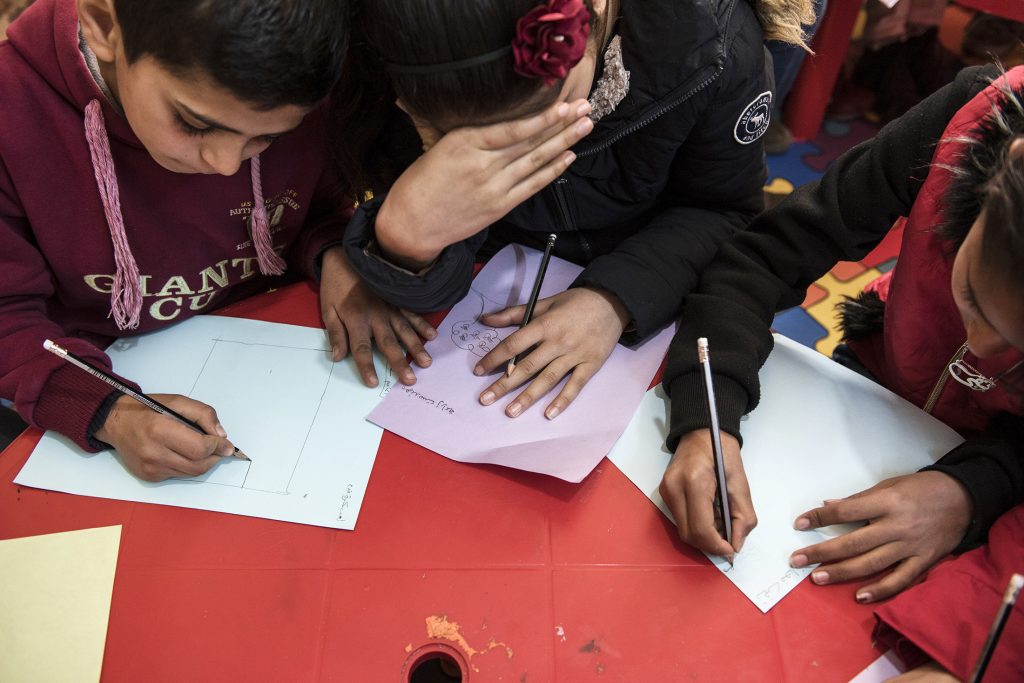
As refugee children get older, the gap becomes much wider: 84% of non-refugee adolescents attend lower secondary school, but only 22% of refugee adolescents have that same opportunity. At the higher education level, just one per cent of refugees attend university compared to 34% globally.
While the right to education for migrant children is recognized in many international and regional Conventions, there is a wide gap between the policy and the practice. Access to education for children, regardless of the migration status, is a key aspect of ICMC advocacy work.
